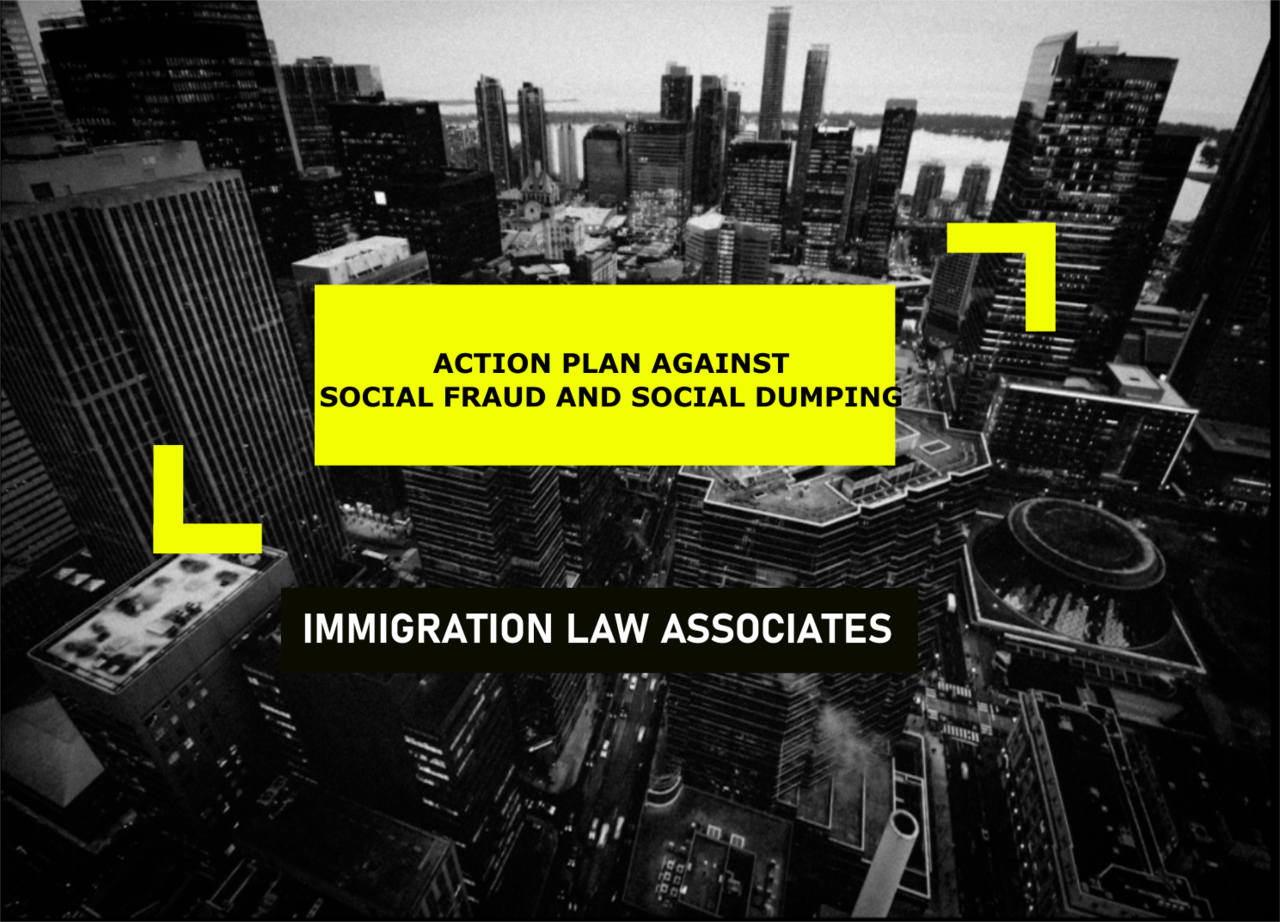BELGIUM- Action plan against social fraud and social dumping

The SIIS “is a strategic body that develops a vision on social fraud prevention based on the knowledge and insights of the services involved and scientific support and translates this into concrete strategies”, “the lubricant - the oil in the machine - between the various inspection services to allow them to work together even more efficiently”.
The SIIS’ 2021 action plan contains inter alia a detailed overview of the actions taken to tackle social dumping, “often identified with cross-border social fraud and the unlawful posting of employees and self-employed workers”.
The plan is self-explanatory, any brief overview will only undermine its value.
As regards cross-border fraud in the framework of transnational provision of services, the plan has the merit to clarify the concept of “unlawful posting”.
A perceptual error in which certain employers posting workers tend to believe (?), is that applying for a Portable Document A1 on the one hand, and compliance with the administrative requirements from Article 9 Directive 2014/67/EU (i.e., posting notification, liaison person, keeping mandatory documents) on the other, trigger lawful posting.
The action plan contains a clear definition of “unlawful posting”: “unlawful posting is then characterised by the failure to comply with the working conditions and remuneration applicable in Belgium and/or by fraud with regard to the applicable social security scheme (with the aim of evading the payment of social security contributions in Belgium, and often also in the country of origin)” (emphasis added).
Failure to comply with the working conditions and remuneration applicable in Belgium triggers:
- administrative or criminal fines-when about conditions of work, remuneration and employment that are provided for by legal and regulatory provisions subject to criminal sanctions
- administrative fines -when about binding collective agreements concluded according to the Act on collective agreements of 5 December 1968 (unless the failure to comply triggers however a breach of legal and regulatory provisions subject to criminal sanctions-see above)
In both cases, in addition to the administrative or criminal fines might be inflicted, the balance of remuneration due and indemnities must be paid to the worker.
In 2019, an amount of €21,769,873.00 in remuneration and indemnities was paid to workers (as a supplement).
Cutting corners in complying with terms and conditions of employment might be expensive (e.g., -failure to grant the rest time between two periods of work, provided for by law, triggers a criminal fine of up to €4000, or an administrative fine of up to €2000, multiplied by the number of workers concerned).
As regards the applicable social security scheme, it must be recalled that the ECJ ruling in Altun and Others (6 February 2018, C-359/16, EU:C:2018:63), was made possible by the perseverance of the Belgian competent social security authority supported by Belgian courts (Court of Appeal of Antwerp and Court of Cassation), in not accepting A1 certificates fraudulently obtained or relied on.
I believe that Belgium will do its utmost to reverse the disappointing ECJ ruling in Vueling (2 April 2020, Joined Cases C-370/17 and C-37/18, EU:C:2020:260), in view of facilitating the fight against social fraud.
Lastly, the recent ECJ ruling in Team Power Europe (3 June 2021, C-784/19, EU:C:2021:427), strengthens Belgium’s position in tackling “forum shopping” as a form of abuse of right.
The action plan entails the action taken (will be taken) to tackle social dumping:
- prevention in public procurement
- better detection of social dumping using datamining models
- social dumping investigations
- cross-border collaboration of inspection services
- make full use of the existing European mediation procedure for disputes concerning A1 certificates
- control of the joint and several liability as regards the payment of remuneration
- investigations of abuse of temporary agency work
- combating cross-border fraud: sectoral approach Limosa -self-employed
Belgium’s policy is part of the general EU policy : the concept of social dumping “covers a wide range of intentionally abusive practices and the circumvention of existing European and national legislation (including laws and universally applicable collective agreements), which enable the development of unfair competition by unlawfully minimising labour and operation costs and lead to violations of workers’ rights and exploitation of workers” -Social dumping in the EU, 13.6.2018, (2015/2255(INI)).





Please sign in or register for FREE
Sign in OR sign up to become a registered The Forum for Expatriate Management website user
Subscribe here